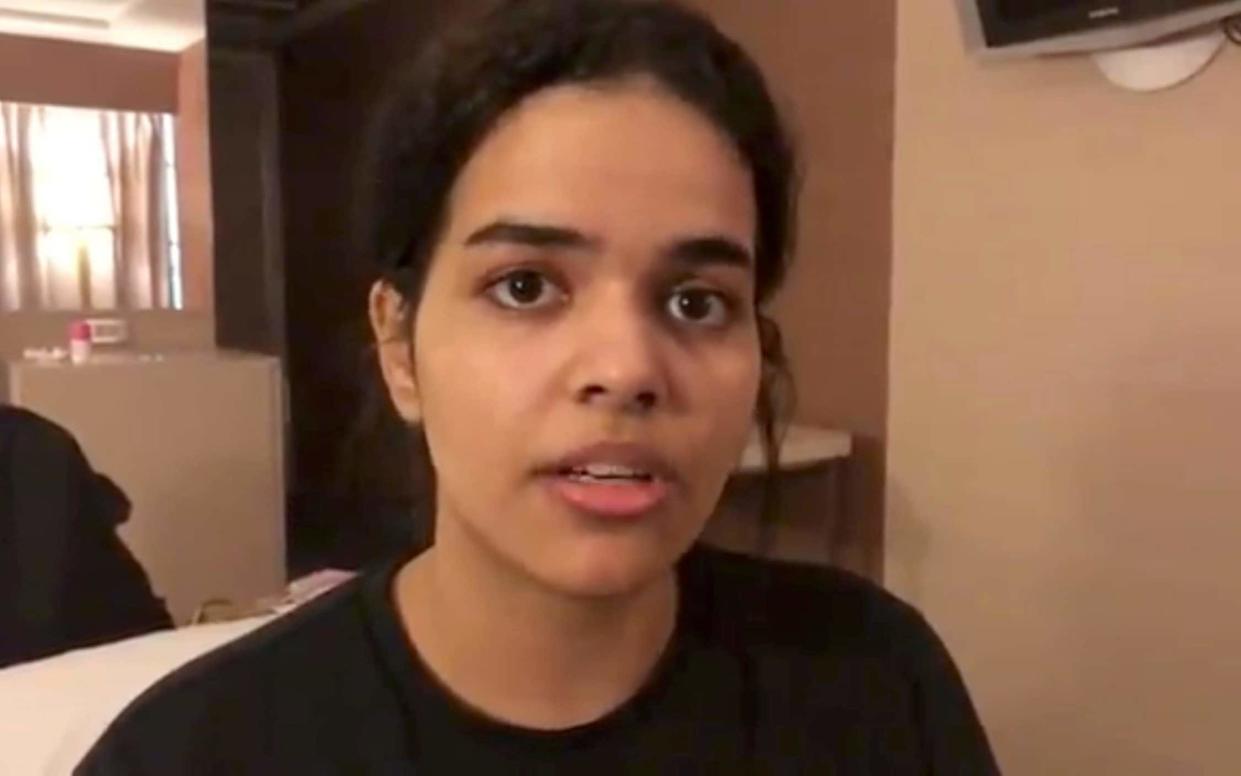Canadian prime minister confirms Saudi teen Rahaf al-Qunun to be granted asylum

A Saudi woman who fled to Thailand fearing her family would kill her has been granted asylum by Canada, Justin Trudeau, the Canadian prime minister, confirmed on Friday.
On Friday night Rahaf Mohammed al-Qunun, 18, was said to be en route to Canada, where she would be granted asylum.
"Canada has been unequivocal that we'll stand up for human rights and women's rights around the world," Mr Trudeau said. "When the United Nations made a request of us that we grant Miss al-Qunun's asylum, we accepted."
Ms al-Qunun boarded a flight from Bangkok to Toronto via Seoul on Friday night, immigration chief Surachate Hakpark said.
"Canada has granted her asylum," Mr Surachate told Reuters ahead of her departure. "She'll leave tonight at 11.15 pm”
Ms al-Qunun was stopped at a Bangkok airport last Saturday by Thai immigration police who denied her entry and seized her passport.

She accused her family of abuse, and refused to meet her father and brother who arrived in Bangkok to try and take her back to Saudi Arabia.
While barricading herself in an airport hotel room, she launched a social media campaign via her Twitter account that drew global attention to her case.
It garnered enough public and diplomatic support to convince Thai officials to admit her temporarily under the protection of UN officials. The UN High Commissioner for Refugees granted her refugee status on Wednesday.
Her case drew global attention to Saudi Arabia's strict social rules, including a requirement that women have the permission of a male "guardian" to travel, which rights groups say can trap women and girls as prisoners of abusive families.
Several Saudi women fleeing abuse by their families have been caught trying to seek asylum abroad in recent years, and have been forcibly returned home. Human rights activists say many similar cases have gone unreported.

